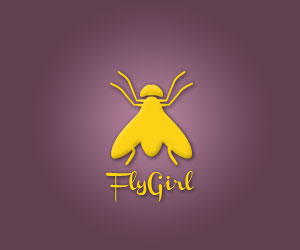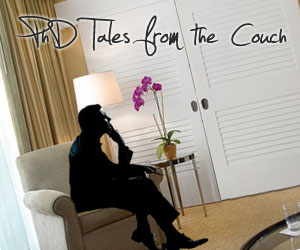 Today’s doctoral programs continue to prepare students for a traditional academic career path despite the inadequate supply of research-focused faculty positions. At the same time, PhDs who decide to pursue a non-academic careers are somehow considered failures or sell-outs by the Ivory Tower. However, a gaping hole remains in this type of reasoning. The academic training has ignored the many trainees who will pursue non-traditional positions. The facts are undeniable, and as Meghan Mott masterfully demonstrates with a series of eye-opening and alarming facts in her article Careers in Traditional Academia: Outlook Bleak, academia simply has no room for the newly minted PhDs. As a result, the majority of PhDs will have to pursue non-academic careers.
Today’s doctoral programs continue to prepare students for a traditional academic career path despite the inadequate supply of research-focused faculty positions. At the same time, PhDs who decide to pursue a non-academic careers are somehow considered failures or sell-outs by the Ivory Tower. However, a gaping hole remains in this type of reasoning. The academic training has ignored the many trainees who will pursue non-traditional positions. The facts are undeniable, and as Meghan Mott masterfully demonstrates with a series of eye-opening and alarming facts in her article Careers in Traditional Academia: Outlook Bleak, academia simply has no room for the newly minted PhDs. As a result, the majority of PhDs will have to pursue non-academic careers.
Non-Academic Careers are NOT Alternative
by
MSG: An Ionic Dream
by
Do salt scrubs really make you glow like the spa menu descriptions claim? The treatments sound awesome but they are pricey so I want to make a smart decision.
-Inbok
The 7 Requirements of All Effective Scientists
by
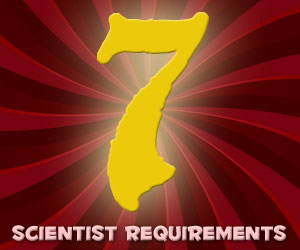 Editor’s note: As part of an answer to a question in our recent interview, Mark Changizi shared his prescriptive guide for scientists that he used to give to all of his students as they entered the lab. We found the advice so valuable we decided to publish it on it’s own. The insights are not only timeless, but also form the basis of his upcoming book, Aloof.
Editor’s note: As part of an answer to a question in our recent interview, Mark Changizi shared his prescriptive guide for scientists that he used to give to all of his students as they entered the lab. We found the advice so valuable we decided to publish it on it’s own. The insights are not only timeless, but also form the basis of his upcoming book, Aloof.
Managing Chronic Health Conditions in Lab
by
Dear Dora,
I’m currently a masters degree student and plan to start a PhD next year. What I want most of all is an academic scientific career. However I have a health issue that is very annoying. I suffer from a lot of intense stomach aches, usually so bad that I have to lie down for the rest of the day. They usually occur late in the day and last through the evening and night – causing a lot of bad sleep. I have a very nice doctor, but there’s not much hope of finding a diagnosis or cure.
My Postdoc Story: Staff Scientist, @27andaPhD
by
 While nearly all of us face challenges during our postdoctoral years, we often feel alone in our struggles. In this series, we hope to share encouraging and uplifting stories of how other scientists were able to turn their situation around and move forward, despite a non-ideal situation. Like snowflakes, fingerprints, and nightmares, every postdoctoral experience is unique, so today we share the Postdoc Story of another successful scientist.
While nearly all of us face challenges during our postdoctoral years, we often feel alone in our struggles. In this series, we hope to share encouraging and uplifting stories of how other scientists were able to turn their situation around and move forward, despite a non-ideal situation. Like snowflakes, fingerprints, and nightmares, every postdoctoral experience is unique, so today we share the Postdoc Story of another successful scientist.
Make Up Your Mind! When Phosphorylation Turns Enzymes “ON” or “OFF”
by
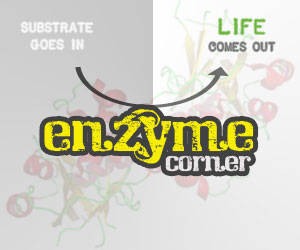 Previously, I told you about how phosphorylation can turn some enzymes on, and other enzymes off. In my new Enzyme Corner article here on BenchFly, as I’m quite fond of doing I throw yet another monkey wrench into the machine. Today, we discuss how some enzymes can be both activated and inactivated by phosphorylation.
Previously, I told you about how phosphorylation can turn some enzymes on, and other enzymes off. In my new Enzyme Corner article here on BenchFly, as I’m quite fond of doing I throw yet another monkey wrench into the machine. Today, we discuss how some enzymes can be both activated and inactivated by phosphorylation.
Harnessing the Neuroscientist, Author and TV Star: Mark Changizi, PhD
by
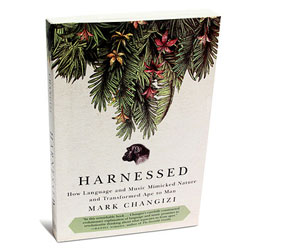 As scientists it’s easy to fall into the trap of focusing so narrowly on our projects that we lose sight of how we fit in to the world around us. Luckily for us, there are folks like our friend Mark Changizi, PhD, neuroscientist and author, who tackle the questions that are so big (Why do we see in color?) we often miss them. In his most recent work, Harnessed, Changizi proposes that music evolved to fit our brains, not vise versa. In fact, noises we’re keenly aware of in nature–like the sounds of humans moving in our midst–serve as the building blocks for music. We listen to the sounds of nearby humans to determine whether someone is coming or going, threatening or peaceful, near or far–and we prepare our response accordingly. Music then, having been designed from those sounds, elicits an instinctual emotional response, which helps explain why throwing a loud, fast-paced speed metal album on tends to make us alert and aggressive, while delicate classical music may put us at ease.
As scientists it’s easy to fall into the trap of focusing so narrowly on our projects that we lose sight of how we fit in to the world around us. Luckily for us, there are folks like our friend Mark Changizi, PhD, neuroscientist and author, who tackle the questions that are so big (Why do we see in color?) we often miss them. In his most recent work, Harnessed, Changizi proposes that music evolved to fit our brains, not vise versa. In fact, noises we’re keenly aware of in nature–like the sounds of humans moving in our midst–serve as the building blocks for music. We listen to the sounds of nearby humans to determine whether someone is coming or going, threatening or peaceful, near or far–and we prepare our response accordingly. Music then, having been designed from those sounds, elicits an instinctual emotional response, which helps explain why throwing a loud, fast-paced speed metal album on tends to make us alert and aggressive, while delicate classical music may put us at ease.
Let’s Talk About (Fruit Fly) Sex
by
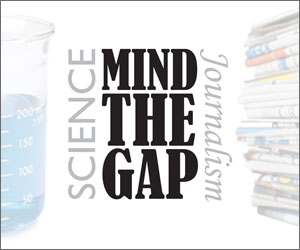 The fruit fly Drosophila melanogaster has been the preferred model system for the study of numerous biological processes for decades, if not centuries. These little beasts are amenable to genetic manipulation, are relatively easy to keep in captivity, and have all sorts of physical traits that make them useful to scientists. Even though I work with frogs, I spend at least half my time reading about flies.
The fruit fly Drosophila melanogaster has been the preferred model system for the study of numerous biological processes for decades, if not centuries. These little beasts are amenable to genetic manipulation, are relatively easy to keep in captivity, and have all sorts of physical traits that make them useful to scientists. Even though I work with frogs, I spend at least half my time reading about flies.
Soul Science: Genetics and Tantra with Ingrid Borecki, PhD
by
 “Then according to the laws of the universe under Tantra, evil does not exist.”
“Then according to the laws of the universe under Tantra, evil does not exist.”
This is a bold statement made by Rod Stryker during a ParaYoga teacher training back in 2009 or so. It was during my early days as a developing yogini, and this statement warmed my heart and soul, and made the world seem to be a safe place where anything is possible.
Soul Science: Where Biological and Complementary Research Meet
by
 I am a huge fan of scientists and of yogis.
I am a huge fan of scientists and of yogis.
I have spent the last 14 years absorbed in the world of life science. I’ve spent many hours talking w/ scientists about their experiments, their labs, and their lives. This helped me define a career focused on customer service, sales, market research, and finally social media. The best part of my job is when I get to spend time talking to scientists about their research and careers.

